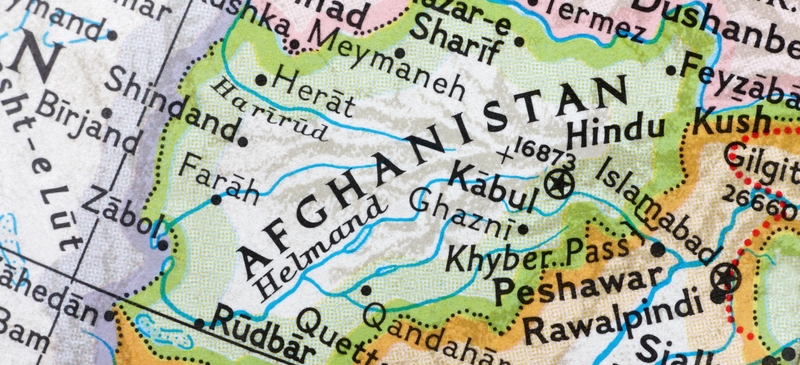
Human rights cannot be a luxury in Afghanistan
by Joanna Buckley
The Afghans with whom I worked in Bamyan province, Afghanistan, often asked me why foreigners were so concerned about the destruction of historical monuments yet seemingly so indifferent to the human suffering that occurred. They were referring to the international outcry which followed the demolition of the ancient statues of Buddha, carved into the side of the Bamyan valley and destroyed by the Taliban in March 2001. To this day, foreigners in Afghanistan travel to Bamyan to visit the gaping holes that once housed the giant sandstone statues. To most Hazaras, the ethnic minority that lives in Bamyan, these empty niches represent more than the wanton destruction of their cultural heritage: they are also a reminder of killings that took place around the same time. In the most notorious incident, in January 2001, Taliban forces were accused of the massacre of hundreds of civilians in Yakawlang district, north of the province’s capital. This is just one example of the many atrocities that occurred during almost three decades of conflict in Afghanistan. But in the rush to end the war and leave Afghanistan there is the risk that the international community will fail to address violations of human rights and past war crimes.
That would be a mistake. The western strategy for Afghanistan is based on convincing the Afghan population that the government of President Hamid Karzai is worth supporting - and eventually leaving the country in his hands. But the Kabul administration lacks credibility, particularly following the elections of August 2009 which were marred by widespread fraud; and because it has left violations of human rights unpunished, fostering a culture of impunity. In December 2009 the government published the 'national reconciliation, general amnesty and national stability law', which effectively granted a blanket amnesty to all those involved in the many years of conflict in Afghanistan.
Western governments seem intent on ignoring this situation. In a January 2010 talk in London the former British ambassador and newly appointed ‘senior civilian representative’ for NATO, Mark Sedwill, said that peace will require dealing with “some pretty unsavoury characters”. Diplomats attending a major international conference on Afghanistan in London in early 2010 confirmed that, despite official government rhetoric to the contrary, Sedwill echoes the prevailing sentiment - that there is no room at the moment for taking human rights into consideration. Human rights have become a luxury - a potential added bonus. Instead, politicians and diplomats working in Kabul are focusing on ways to end the conflict through a political settlement. This would involve measures to provide alternative opportunities for insurgents involved in the current fighting (reintegration), most probably coupled with some kind of high-level political deal with the Taliban (reconciliation).
The governments involved in Afghanistan’s reconstruction are right to look for ways to persuade insurgents to lay down arms. And Ambassador Sedwill correctly argued that it would be hypocritical to impose stringent moral standards on insurgents while many members of the government are implicated in serious crimes. Others suggest that attempts to marginalise Afghan warlords now by holding them to account for past abuses will result in further insecurity, possibly leading to civil war. But this does not need to be an either or situation: there are ways of building human rights considerations into a future political settlement and in fact utilising these to strengthen any deal reached, providing a mechanism of leverage.
Insurgents and members of the Afghan government implicated in human rights abuses should agree to draw a line under the past. But those involved in future violations should be held to account. In these cases evidence of past crimes would be considered. If required, violators of human rights should be referred to the International Criminal Court (ICC) - Afghanistan has ratified the Rome Statute that created the ICC and is bound by its provisions. The United Nations, which has a more neutral reputation in Afghanistan than NATO or the US and UK governments, should monitor compliance with the human rights provisions of a peace agreement. Other international organisations should offer the UN full political and financial support in its role - in particular the European Union, which has been a vocal defender of human rights and the rule of law in Afghanistan. They should also support a more holistic process for transitional justice, including initiatives to recognise, investigate and document past crimes.
The foreign governments, which promised that their military intervention would result in justice for all Afghans, have a responsibility and an opportunity to help implement such an agreement. The US and UK governments have rightly stressed that any future reconciliation process has to be Afghan-led. But common sense dictates that talks between the Kabul government and those insurgents open to negotiations will at some point require the services of a foreign neutral broker. The experience of the civil war in Afghanistan in the 1990s illustrates that maintaining a peace deal once it has been reached is a treacherous affair. The presence of an outside guarantor and the inclusion of human rights conditions would make any deal reached more enduring.Implementation will require the international community to show a concerted political will and a co-ordinated approach. This is not an easy thing to achieve; the various institutions and governments involved assign differing priorities to protecting human rights. But most would like to leave Afghanistan soon. They need to understand that foreign troops will not be able to leave until the Kabul government asserts its authority over the country, and the Afghan government will never be able to gain the trust of its people unless it can guarantee their rights.
Joanna Buckley is a former political adviser, Office of the Special Representative of the EU for Afghanistan, and former information analyst, United Nations Assistance Mission in Afghanistan. She is also the author of “Can the EU be more effective in Afghanistan?”, a new report published by the Centre for European Reform.
